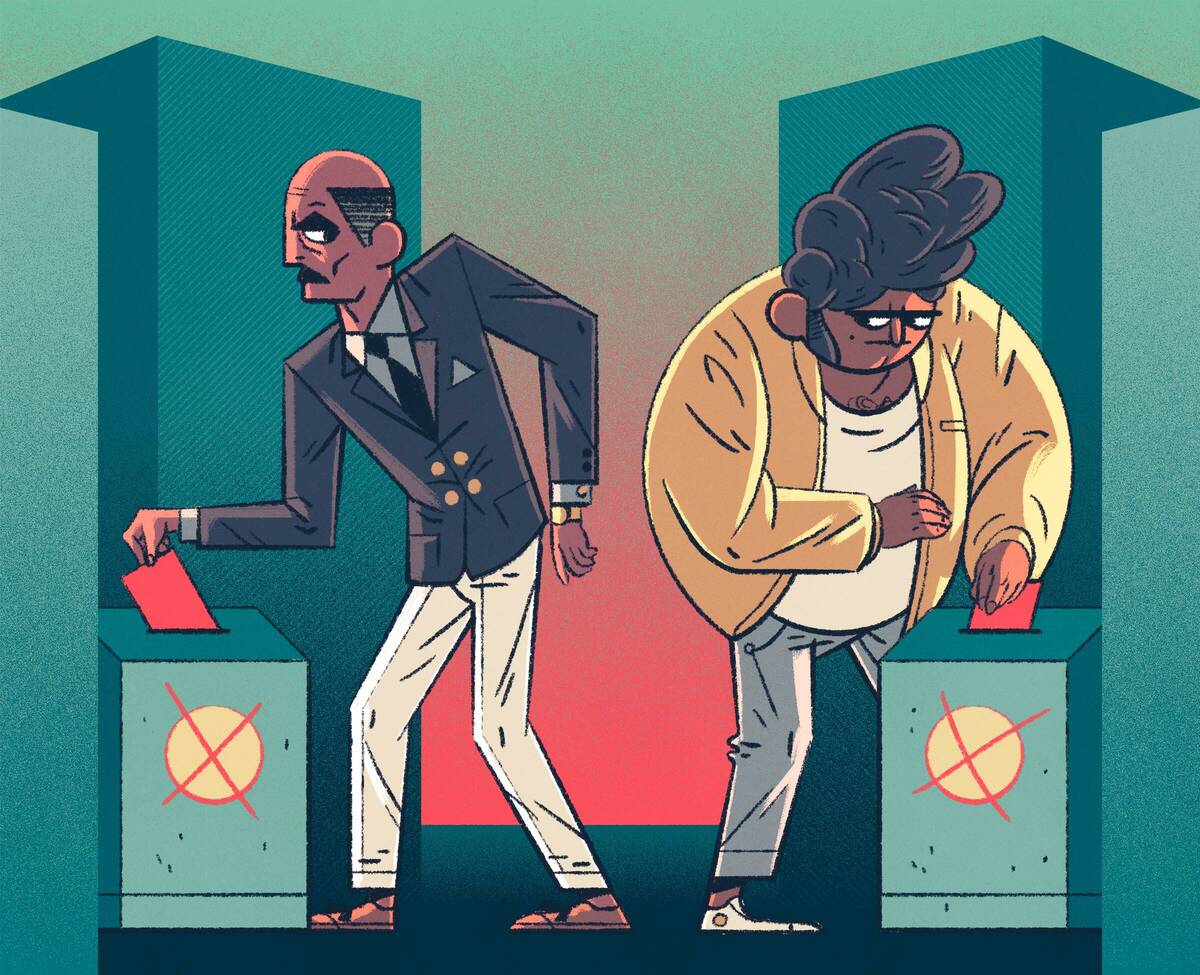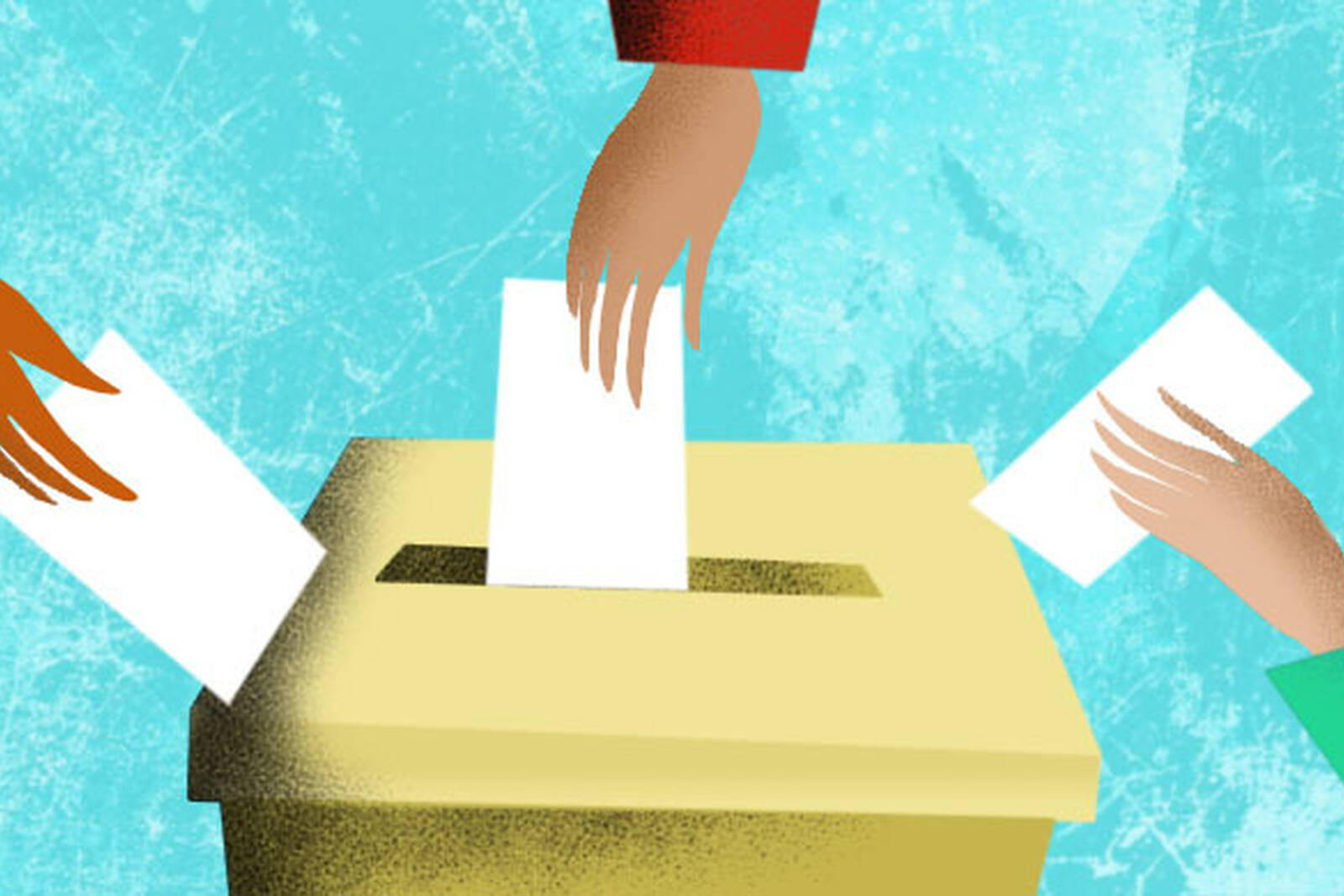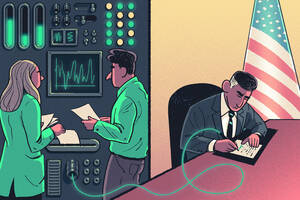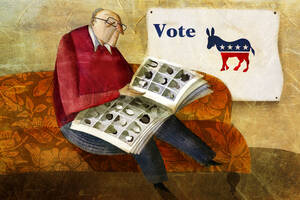Meanwhile, Russia’s invasion of Ukraine is making Western democracies rethink some of their most fundamental assumptions about how democratic norms take hold.
So what do we know about democracies, anyway? How do they stack up against other kinds of governments? And how can they be strengthened? Here’s a roundup of some our research on the topic.
“A common notion is that a democracy should be superior to dictatorships because they are able to select the best people,” says Georgy Egorov, a professor of managerial economics and decision sciences. That is, democratic regimes should oversee more economic success and experience more longevity. But this is not always the case, according to a 2012 study from Egorov and his collaborators.
Where democracies have the edge, the researchers find, is in their ability to adapt to changing circumstances.
Imagine a country composed of both generals and economists. The country goes to war and the generals form a government. In this scenario, the government is effective whether it was formed as a democracy or a dictatorship because the best wartime leaders—the generals—are already in place.
Now, however, imagine that the war ends and the country experiences an economic recession. A democracy can adapt by electing the economists to power—but a dictatorship cannot. After all, even though the generals are unable to manage the crisis efficiently, they are unlikely to cede power.
“Here is where we get an unambiguous prediction that the more democratic a country is, the more able it is to fire people that are no longer competent and bring in people that are needed at the moment,” Egorov says.
Ameet Morjaria, an associate professor of managerial economics and decision sciences, is a native of Tanzania, but attended school in Kenya, where he’d long observed how curiously haphazard Kenya’s road network seemed to be. He points out that, if you were to look at a road map of Kenya from the 1970s and 1980s, “you literally see roads going nowhere.”
The haphazardness is largely due to mismanagement of public funds leading to corruption, which was more acute during periods of autocracy, according to a study by Morjaria and his colleagues.
Since gaining independence from Great Britain in the early 1960s, Kenya has experienced alternating periods of autocracy and democracy, often within the same leaders. Under autocracy, districts in which the population shared the president’s ethnicity received three times more investment in road-building projects than their population size would indicate—hence the construction of all of those roads that were seemingly designed without transportation goals in mind. But those funding imbalances largely attenuated during periods of democracy, suggesting the power of democracy to prevent corruption.
“Not only does political competition become better regulated, but the constraints on executive action are better monitored as parliamentary committees are formed, and civil society gains voice,” Morjaria says. He adds that simply the possibility, albeit a small one, of being kicked out of office “can cascade into constraining those in charge.”
Social mobility is important to maintaining a stable democracy. When people believe that they are likely to move into a different social class in the future, they will vote in the interest of those future selves, not necessarily their current selves.
But there is a catch: having high social mobility isn’t enough to maintain a stable democracy. Pivotal decision-makers also have to plausibly believe that they (or their descendants) are equally likely to move up or down in class. Such is the finding of a separate study from Egorov and his colleagues.
For example, if you are currently in the middle class and believe, correctly or not, that you are more likely to become rich than poor, this may lead you to favor an autocratic government that benefits the wealthy, rather than a democratic one that works in the interest of the middle class.
This is why a “thick middle class makes democracy more stable than a thin one,” Egorov says. When the middle class constitutes much of the population, and middle-class citizens feel they are likely to either remain or return there, they will be reluctant to give power to the rich.
Political scientists think about regimes as being a spectrum. On the one end are true democracies, in which democratic norms exist and function. On the other end are strong dictatorships, where power is concentrated in the hands of an individual or small group, without any limits or oversight. Between these poles fall limited democracies and weak dictatorships: regimes in which democratic norms exist but do not function, or in which power is concentrated, but not absolutely.
It’s these limited democracies and weak dictatorships that are most likely to respond with aggression to a foreign conflict, compared with true democracies and strong dictatorships, according to a model from Sandeep Baliga, a professor of managerial economics and decision sciences.
He and his coauthor constructed a game-theory model in which conflicts are triggered by leaders who fear both being attacked by other nations and being removed from power by the people they govern.
In their model, limited democracies (and weak dictatorships) tend to be more aggressive in response to a foreign threat than either true democracies or strong dictatorships. That’s because voters are likely to punish leaders in a true democracy if they deem a war to be unnecessary, making democratic leaders more dovish. Leaders of a limited democracy (or weak dictatorship), however, face only some checks on their power, making them less concerned about political blowback from engaging in an unnecessary war, and more worried about appearing weak in the face of aggression. Meanwhile, strong dictators, confident in their power, are less concerned about appearances, making them less aggressive than weak dictators.
The researchers then put their model to the test on real-world data. They found that two countries with limited democracies are more likely to fight each other than any other combination, while peace is most likely at either extreme.
To Baliga, the results suggest that spreading democracy can be risky: when it is not fully implemented, a democratic government could be more aggressive than the regime it replaced. “If you take half measures, you can make matters worse,” says Baliga.
Economic crises often lead to political unrest—but not always.
According to research from Nancy Qian, a professor of managerial economics and decision sciences, in countries with high levels of trust, a recession is less likely to trigger political turnover than in countries with lower levels of trust.
“If I’m a less-trusting person, I might say something like, ‘I don’t understand the details of what our leader is doing, but most politicians are bad and they’re lazy, so it is probably his fault,’” Qian explains. Alternately, a trusting person might blame factors beyond politicians’ control. “It’s about how likely I am to attribute the economic problems to circumstance or luck versus to the political leadership.”
But critically, she and her colleagues find, this relationship was only seen in democracies, where people had the power to vote officials out of office.
“We didn’t see this pattern in autocracies, which makes sense,” Qian says. “You can change your leadership in an autocracy by having a revolution or a coup, but that is more difficult to pull off, so there’s not much people can do,” even if they are generally slow to trust.




